Addiction can feel like a never-ending road of despair. While it can be a dark and overwhelming journey, there is hope. If you are struggling…
Addiction can feel like a never-ending road of despair. While it can be a dark and overwhelming journey, there is hope. If you are struggling with addiction, you don’t have to endure this fight alone. Addiction counseling helps you recover from addiction by giving you support and guidance to overcome challenges and improve your life.
If you struggle with drug, alcohol, gambling, or overeating issues, addiction counseling can help you understand the reasons behind your addiction. It can also teach you how to cope with it and create a personalized addiction recovery plan.
A certified addiction counselor can help you understand your addiction. They can also teach you better ways to handle stress and triggers. Additionally, they can help you develop the skills needed to stay sober and improve your overall quality of life.
In this article, we’ll discuss how addiction counseling can help you recover and why it’s important. Addiction counseling is a helpful and supportive way to deal with addiction. It gives you a safe place to understand your feelings and provides practical methods to overcome addiction. It can be life-changing and give you the power to break free from the grip of addiction.
Let’s start by learning more about what addiction counseling means.
What is Addiction Counseling?
Addiction counseling is a specialized form of therapy that focuses on treating individuals with substance use disorders. It aims to help individuals understand and overcome their addiction by addressing the underlying issues contributing to their addictive behavior.
Truly, we cannot overstate the importance of addiction counseling. It recognizes addiction as a disease rather than a personal choice or moral failing. Addiction counselors can offer understanding and supportive help, which is important for people trying to recover from addiction.
One of the key features of addiction counseling is its specialized nature. Licensed addiction counselors have expertise and training that allows them to understand the complex dynamics of addiction. They can identify the underlying causes of substance use disorders, such as trauma, mental health conditions, or other behavioral issues. By addressing these underlying issues, addiction counselors help individuals develop healthier coping mechanisms and positively change their lives.
Furthermore, addiction counseling goes beyond just treating the addiction itself. It also focuses on improving the individual’s overall quality of life.
This includes repairing relationships with family and loved ones. It also involves improving problem-solving skills. Additionally, it entails finding healthy ways to manage stress instead of relying on drugs.

How Does Addiction Counselling Work?
In addiction counseling, the process starts with building a safe and trusting relationship between the counselor and the individual seeking help. This is essential to create an environment where individuals feel comfortable sharing their struggles and experiences. The counselor establishes this safe relationship by demonstrating empathy, active listening, and a non-judgmental attitude.
The next step is conducting an initial assessment. Substance use history, co-occurring mental health disorders, and overall physical and emotional well-being are crucial components of this assessment. Through this assessment, the counselor can better understand the individual’s unique needs and tailor the addiction treatment plan accordingly.
The assessment informs the development of a treatment plan in collaboration with the individual. The plan outlines the goals, strategies, and interventions that we will use to address the addiction and any underlying issues. We set these goals to promote long-term recovery and improve the individual’s overall quality of life.
Individual therapy plays a crucial role in addiction counseling. It provides a safe and confidential space for the individual to explore their thoughts, emotions, and behaviors related to their addiction. The counselor helps the individual gain insights into the root causes of their addiction and develop healthier coping mechanisms.
Group therapy is another important aspect of addiction counseling. It allows individuals to connect with others going through similar struggles, providing support, validation, and accountability. Group therapy also allows individuals to learn from each other’s experiences and develop important social and communication skills.
Addiction counseling involves building a safe relationship, assessing, planning treatment, and setting goals. Remember, addiction counseling is a collaborative process that requires openness, honesty, and willingness to change.
Addiction counseling helps individuals comprehend the reasons behind their addiction. It also assists them in developing healthier coping mechanisms for their problems. Additionally, it equips them with the necessary skills to maintain sobriety.
Importance of Addiction Counseling in Treatment and Recovery
Addiction can be a devastating and all-consuming force in a person’s life. It affects not only the individual struggling with the addiction but also their loved ones and the entire community.
If you or someone you know is battling addiction, you may wonder if there is hope for recovery. The answer lies with addiction counseling in treatment and recovery.
Here are some key reasons why addiction counseling is important:
Addressing the Root Causes of Addiction
Addiction is often a result of deeper emotional or psychological issues such as trauma, unresolved grief, or mental health disorders. Addiction counseling helps people explore the reasons behind their substance abuse to understand themselves and their motivations better. By addressing these root causes, individuals can better manage their triggers and develop healthier coping strategies.
Developing Coping Skills
Addiction counseling helps individuals cope with cravings, triggers, and stressors that may lead to relapse. Counselors help patients identify inner turmoil and develop healthy coping mechanisms that strengthen sobriety goals. These may include stress management techniques, communication skills, problem-solving strategies, and positive self-care practices.
Providing Support and Accountability
Recovery from addiction can be a challenging and isolating journey. Addiction counseling offers a supportive and non-judgmental space where individuals can openly discuss their struggles, fears, and achievements. Counselors serve as a source of guidance, encouragement, and accountability, helping individuals stay motivated and focused on their recovery goals.
Building a Strong Support Network
Addiction counseling often includes group therapy sessions, which allow individuals to connect with others who are facing similar challenges. This group dynamic provides a sense of community and shared experiences, helping individuals feel less alone in their journey. Building a support network of peers who understand the struggles of addiction can be instrumental in maintaining long-term recovery.
Promoting Self-Awareness and Personal Growth
Addiction counseling encourages individuals to reflect on their thoughts, emotions, and behaviors, fostering self-awareness and personal growth. Through therapy, individuals gain insight into the destructive patterns that lead to addiction and work towards developing healthier alternatives. This self-reflection helps individuals build a strong foundation for lasting change and growth.
Preventing Relapse
Relapse is common to happen in addiction recovery, and addiction counseling plays a crucial role in preventing relapse. Counselors help individuals identify potential triggers, develop effective coping strategies, and establish relapse prevention plans.
Addressing the underlying causes contributing to addictive behaviors, will help prevent relapse and support long term sobriety goals.
Using addiction counseling with other treatments can improve the chances of long-term recovery and living fulfilling lives without substances.
Different Types of Addiction That Need Counseling
Addiction is a complex and challenging issue that affects individuals from all walks of life. Whether it’s substance abuse, or other addictive behavior, addiction counseling can be a crucial step towards recovery.
Addiction counseling helps individuals understand the underlying causes of their addiction, develop coping mechanisms, and make positive changes.
In this section, we will explore different types of addictions that commonly require counseling.
Substance Addiction
Substance use disorder, refers to the compulsive and uncontrollable need to use drugs or other substances despite negative consequences. It is a chronic condition that affects the brain and behavior, leading to a range of physical, psychological, and social problems. Substance addiction can involve various substances, including but not limited to:
- Alcohol: Alcohol addiction, is a dependence on alcohol, leading to negative effects on physical health, relationships, and overall functioning.
- Opioids: This category includes prescription painkillers like oxycodone and hydrocodone, as well as illicit substances such as heroin. Opioid addiction has become a significant public health issue, leading to high overdose rates and potential long-term health consequences.
- Stimulants: Drugs like cocaine, methamphetamine, and prescription stimulant medications are highly addictive. They increase alertness and energy levels but can also result in severe health problems.
- Sedatives and Hypnotics: Substances, such as benzodiazepines like Valium or Xanax, are used to treat anxiety, insomnia, and seizures. However, they can also lead to dependence and addiction.
- Hallucinogens: LSD, MDMA (ecstasy), and psilocybin mushrooms are examples of hallucinogenic substances that can alter perception, mood, and cognition. While addiction to these substances may not be as common, it can still occur.
- Inhalants: These are a group of substances that produce psychoactive effects when inhaled, such as solvents, aerosol sprays, and chemical gases. Inhalant addiction is particularly dangerous due to the substance’s hazardous nature.
Gaming Addiction
Gaming addiction, also termed Internet Gaming Disorder (IGD), is a recognized form of addiction characterized by excessive and compulsive gaming habits.
Excessive gaming that leads to addiction can significantly negatively affect a person’s physical health, mental well-being, relationships, and overall functioning.
Gaming addiction requires treatment due to its detrimental impact on health, mental well-being, relationships, academic or occupational functioning, and finances. Given the harmful effects of gaming addiction, individuals who struggle with this issue must seek treatment.
Internet and Technology Addiction
Internet and technology addiction refers to excessive and uncontrollable use of the Internet, social media platforms, online gaming, and other technologies. This addiction can severely affect an individual’s physical, mental, and social well-being.
This addiction can lead to various psychological issues and negatively impact academic or occupational performance. Definitely, the chance that it can disrupt daily life activities and social isolation and relationship problems.
Pornography Addiction
Pornography addiction is a growing concern in today’s society, with widespread access to online explicit content. This type of addiction occurs when an individual becomes dependent on consuming pornography to satisfy their sexual desires.
One of the dangers of pornography addiction is its impact on personal relationships. Excessive consumption of pornography can lead to decreased intimacy and emotional attachment with a partner. Individuals may develop unrealistic standards of sexual behavior or become desensitized to real-life interactions. This can result in feelings of isolation, trust issues, and relationship breakdowns.
Another danger of pornography addiction is its potential effect on mental health. Excessive exposure to explicit material can lead to distorted perceptions of sex, body image issues, and anxiety or depression. Moreover, individuals addicted to pornography may experience difficulty in achieving sexual satisfaction without relying on explicit content, further impacting relationships.
Food Addiction
Food addiction involves uncontrollable and compulsive consumption of food, often resulting in negative consequences for an individual’s physical and mental health. One of the dangers of food addiction is its impact on weight and overall health. People who are addicted to food often have a strong craving for highly processed, sugary, or fatty foods.
Overeating followed by guilt and shame can negatively affect self-esteem and body image, contributing to poor mental health. Moreover, food addiction also takes an emotional toll on an individual.
Many individuals with food addiction use food as a coping mechanism for stress, anxiety, boredom, or emotional distress. However, relying on food as a way to manage these emotions creates an unhealthy and unsustainable relationship with food. This can lead to a cruel cycle of emotional eating, guilt, and further emotional distress. Breaking free from food addiction often requires professional help, and that includes counseling.
Shopping Addiction
Shopping addiction, also known as compulsive buying disorder, is a behavioral addiction characterized by an inability to control spending. This addiction poses several dangers, both to financial well-being and emotional state.
One of the dangers of shopping addiction is its significant impact on finances. Excessive shopping can lead to overwhelming debt, financial instability, and even bankruptcy. The compulsive need to buy items can spiral out of control, causing severe financial consequences.
Furthermore, shopping addiction can also have a detrimental effect on an individual’s emotional health. The temporary sense of euphoria experienced during the act of shopping can quickly turn into feelings of guilt, shame, and regret. This can increase stress and anxiety, leading to a vicious cycle of attempting to alleviate these negative feelings through further shopping.
Additionally, the financial implications and preoccupation with shopping can lead to conflicts and tension within personal relationships.
Relationship Addiction
Relationship addiction, or love addiction, is a behavioral addiction characterized by an intense and obsessive preoccupation with romantic relationships. It involves an excessive need for emotional validation, constant seeking of love and affection, and a fear of being alone.
One of the dangers of relationship addiction is the potential for emotional manipulation and loss of personal identity.
Individuals with relationship addiction may become dependent on their partner to fulfill their emotional needs. This results in a loss of self-esteem and a diminished sense of self. The intense focus on the relationship can lead to neglecting other aspects of life, including personal goals, friendships, and hobbies. This results in feelings of isolation and a lack of fulfillment.
Another danger of relationship addiction is the repeated pattern of engaging in toxic or abusive relationships. Individuals with relationship addiction often prioritize being in a relationship over their own well-being. They may tolerate unhealthy behaviors, abuse, or mistreatment in order to maintain the connection. This can lead to a cycle of emotional pain, power imbalances, and the perpetuation of harmful relationship dynamics.
Work Addiction
Work addiction, also known as workaholism, is a behavioral addiction characterized by an excessive and compulsive need to work. Individuals with work addiction often obsess over work, and are unable to detach from it.
The relentless pursuit of work often leads to neglecting self-care, such as lack of sleep, poor nutrition, and limited exercise. Over time, this can result in exhaustion, a weakened immune system, increased susceptibility to illnesses, and overall deterioration of well-being.
Work addicts commonly experience high levels of stress, anxiety, and burnout. The pressure to excel and the fear of failure can become overwhelming and draining. This can result in a decline in mental health, including symptoms of depression, anxiety disorders, and a decreased quality of life.
Another significant danger of work addiction is its strain on relationships and personal life. Sacrificing time spent with loved ones, neglecting social activities, and failing to maintain a healthy work-life balance are all common. This can lead to strained relationships, feelings of isolation, and a lack of fulfillment in personal life.
Having explored the various types of addiction that call for counseling, let’s now move into knowing who benefits from addiction counseling.
Who Benefits from Addiction Counseling?
Addiction counseling can benefit a wide range of individuals dealing with substance abuse issues or struggling with addictive behaviors. Here are a few groups of people who can greatly benefit from addiction counseling:
- Individuals with Addiction
Obviously, the primary group that benefits from addiction counseling is those individuals with addiction. This includes those who are addicted to drugs, alcohol, or other addictive substances. Counseling helps individuals understand the root causes of their addiction, develop coping mechanisms, and create a relapse prevention plan.
- Family Members and Loved Ones
In reality, addiction doesn’t only affect the individual struggling with the addiction. It also, unfortunately, has a strong impact on their family members and loved ones. Addiction counseling can provide information, guidance, and emotional support to family members. Addiction counseling teaches healthy ways to cope with the challenges of loved one’s addictions.
- Adolescents and Teenagers
Substance abuse among adolescents and teenagers is a growing concern. Addiction counseling can significantly impact young individuals by educating them on the risks and dangers of substance abuse.
Counseling helps explore the underlying issues that may contribute to addiction, and provide tools and strategies to help make healthier choices.
- People with Co-Occurring Disorders
Those struggling with addiction often also suffer co-occurring mental health disorders. This can include depression, anxiety, or post-traumatic stress disorder (PTSD). Addiction counseling can address both substance abuse and mental health issues simultaneously, ensuring a holistic approach to treatment and reducing the risk of relapse.
- Individuals in Recovery
Even after recovering from addiction, it is common for individuals to face ongoing challenges and temptations. Addiction counseling can provide long-term support to individuals in recovery. Counseling can help people in recovery stay focused on sobriety, manage triggers and cravings, and rebuild their lives.
Now that you have learned who benefits from addiction counseling, let’s explore what counseling types individuals suffering from addiction can choose.
Types of Addiction Counseling
Addiction counseling is tailored to the unique needs of those struggling with addiction or co-occurring conditions. Knowing the different types of addiction counseling is important as it is easier to choose the right approach. Thus, ensuring effect and long-term recovery.
First on the list is one of the most common forms of addiction counseling, which is group sessions. These sessions bring individuals together in a supportive and accountable environment. Additionally, group sessions provide a sense of community and allow individuals to share experiences, receive feedback, and learn from one another. This shared understanding can foster a sense of belonging and motivation to overcome addiction.
Individual therapy is another crucial component of addiction counseling. In one-on-one sessions, individuals work closely with a counselor to address the underlying causes of addiction, develop personalized coping strategies, and establish goals for a healthier life. Individual therapy provides a safe space to explore emotions, unresolved traumas, and other factors contributing to addictive behaviors.
Substance use counseling is a specific type of addiction counseling that addresses drug addiction. It involves evidence-based approaches such as cognitive-behavioral therapy (CBT) and motivational interviewing (MI) to help individuals recognize and change addictive behaviors. Moreover, addiction counseling extends to treating co-occurring conditions such as depression, anxiety disorders, and other mental health issues. By addressing these underlying conditions alongside addiction, individuals can work towards comprehensive recovery.
Frequently Asked Questions
If you have questions about addiction counseling, we have answers. Here are some frequently asked questions to help you gain a better understanding:
How Long Does Addiction Counseling Typically Last?
The duration of addiction counseling can vary depending on various factors, including the individual’s needs and progress in treatment. Addiction counseling can generally last anywhere from a few weeks to several months. In some cases, individuals may benefit from ongoing counseling or participation in support groups for an extended period of time.
Remember, addiction recovery is a unique journey for each person, and the length of counseling will be determined by their specific circumstances and treatment plan.
How Does Addiction Counseling Differ From Other Forms of Therapy?
Addiction counseling is a specialized form of therapy that focuses specifically on helping individuals overcome their addiction and achieve long-term recovery. While many types of therapy are available, addiction counseling stands out in several key ways.
First and foremost, addiction counseling is highly specialized and tailored to the unique needs and preferences of individuals struggling with addiction. Therapists specializing in addiction counseling deeply understand the complexities of addiction and the specific challenges individuals face during their recovery journey. They are trained to address the underlying issues contributing to addiction, such as trauma, co-occurring mental health disorders, and dysfunctional family dynamics.
Unlike other forms of therapy that may have a broader focus, addiction counseling strongly highlights providing support and guidance throughout the recovery process. Addiction counselors work closely with their clients to develop personalized treatment plans that address their specific needs, preferences, and goals. They help individuals develop coping strategies, build healthy relationships, and develop the necessary skills to maintain sobriety.
Is Addiction Counseling Confidential?
Yes, addiction counseling is typically confidential. Licensed addiction counselors are ethically and legally obligated to maintain strict confidentiality to safeguard the privacy of their clients. This means that the information disclosed during counselling sessions, including personal stories, struggles, and other sensitive details, will generally remain confidential between the counselor and the client.
However, there are certain exceptions to confidentiality that counselors must follow. These exceptions include situations where clients risk harming themselves or others, cases of suspected child abuse or neglect, or when the law requires them to disclose information in legal proceedings. Additionally, counselors may consult with supervisors or other professionals to enhance the quality of treatment, but they will strive to protect the client’s identity during these discussions.
What should I look for in an addiction counselor?
When seeking addiction counselling, finding a counselor who can provide the support and guidance you need on your road to recovery may seem a daunting task. To help you, here are some key factors to consider when looking for an addiction counselor:
Qualifications and Credentials: Look for a licensed and certified counselor in addiction counselling. They should have the necessary education and training to effectively help individuals struggling with addiction.
Experience and Specialization: Consider the counselor’s experience working specifically with addiction. Find out if they have dealt with cases similar to yours, and if they have expertise in treating the specific substance or behavior you are struggling with.
Approach and Techniques: Different counselors may use various therapeutic approaches and techniques. Research and inquire about their approach to ensure it aligns with your needs and preferences. Some common approaches include cognitive-behavioral therapy, motivational interviewing, and holistic approaches.
Availability and Accessibility: It is essential to find a counselor who is accessible and available when you need support. Consider their availability for appointments, whether they offer virtual counselling options, and if they provide emergency support or have a referral system.
Compatibility and Trust: Building a strong therapeutic relationship is crucial for successful addiction counselling. Trust and compatibility with your counselor are vital for opening up and feeling comfortable discussing personal issues. Consider scheduling an initial consultation to assess if you feel connected and trust their expertise.
Supportive Services: Addiction recovery often requires a comprehensive approach, including support services such as group therapy, family counselling, or referral to support groups. Inquire about the counselor’s ability to provide or facilitate these additional resources.
Remember, finding the right addiction counselor is a personal decision. Take the time to research and interview potential counselors to find someone who can provide the support, guidance, and expertise you need on your journey to recovery.
How much does addiction counselling usually cost?
The average cost of drug rehabilitation is $13,465 according to the National Center for Drug Abuse Statistics. According to this same body, 30 day inpatient rehabilitation programs typically cost $12,500.
It is important to note that the cost of addiction counselling should not deter you from seeking help, as there are often options available to make it more affordable.
At CRTC, treatment options at the Riverside Treatment Center start at $8,950 and at the San Jose Treatment Center treatment options start at $5,950. CRTC treatment plans are well below the national averages determined by the National Center for Drug Abuse Statistics. CRTC provides exceptional services such as medical detox, ongoing medical care, individualized addiction counseling, holistic treatments, in a relaxing topical location.
Will addiction counselling guarantee that I will overcome my addiction?
While addiction counselling can be an incredibly valuable tool in the journey towards recovery, it is important to understand that it does not guarantee a complete overcoming of addiction. Addiction is a complex and multifaceted issue, and recovery is a highly individualized process.
Remember, addiction counselling can only significantly increase the chances of successful recovery. However, it doesn’t guarantee complete recovery. That’s why individuals need to be actively engaged in the counselling process. Their commitment to complete treatment actually guarantees better recovery.
How do I know if addiction counselling is right for me?
Deciding to seek help for addiction is a brave step towards recovery. But how do you know if addiction counselling is the right choice for you? Here are a few indicators to help you determine if addiction counselling is the right path for your recovery.
Firstly, if you have tried to overcome addiction on your own but have been unsuccessful, addiction counselling can provide the additional support and guidance you need. Addiction is a complex and challenging issue, and having a professional counselor by your side can greatly improve your chances of success.
If you find that your addiction is causing significant negative consequences in your life, such as strained relationships, declining physical and mental health, or problems at work or school, then addiction counselling can be an effective solution. A counselor can help you address the underlying issues contributing to your addiction and develop healthy coping mechanisms to replace destructive behaviors.
Another indication that addiction counselling may be right for you is if you feel overwhelmed, lost, or stuck in your recovery journey. Since addiction can be an isolating, daunting, and lonely experience, having a counselor who understands your struggles can make a world of difference.
Lastly, if you have a strong desire and motivation to change and are willing to put in the work, addiction counselling can be a powerful tool in your recovery toolkit. It requires commitment, openness, and a willingness to explore and address the underlying root causes of your addiction.
Final Thoughts
Addiction counselling can truly be a life-changing experience for individuals who are on the road to recovery. It provides a safe, peaceful, and supportive environment where individuals can explore their emotions, thoughts, and behaviors related to addiction. Through the guidance of a skilled and compassionate counselor, individuals can gain valuable insights into their addiction and develop effective coping strategies to maintain sobriety.
Remember, addiction recovery is a journey and not a destination. Therefore, it requires commitment, patience, and ongoing support.
If you are seeking an addiction counselor that can help you, Costa Rica Treatment Center (CRTC) can assist you. CRTC is a renowned addiction recovery center abroad with treatment centers in San José and in the mountains of Costa Rica. From evaluation and medical detox to clean living experience transformation, CRTC can help you with every recovery step.
Throughout your treatment, our addiction counselors provide unwavering support and guidance. Our counselors utilize evidence-based techniques such as cognitive-behavioral therapy, motivational interviewing, and trauma-informed care to promote healing and empower you on your path to recovery.
We understand that seeking addiction treatment can be daunting, but at Costa Rica Treatment Center, you don’t have to face it alone. Take a step toward a brighter future today by contacting us or getting your free evaluation.








